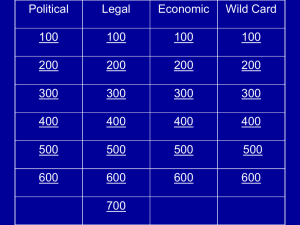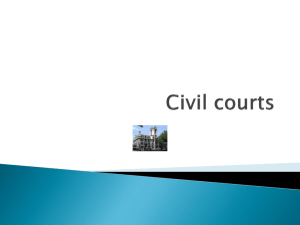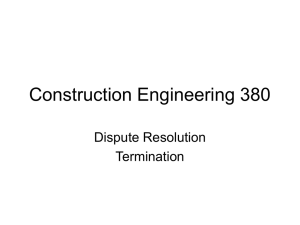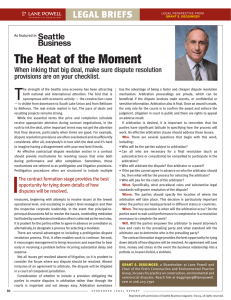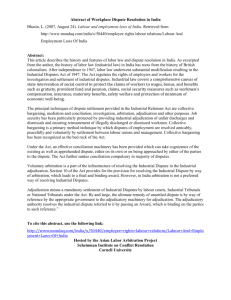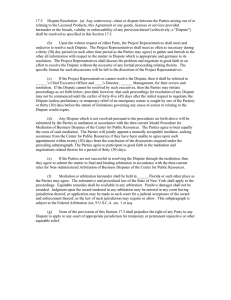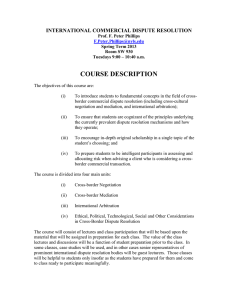Shawn Christiansen
advertisement
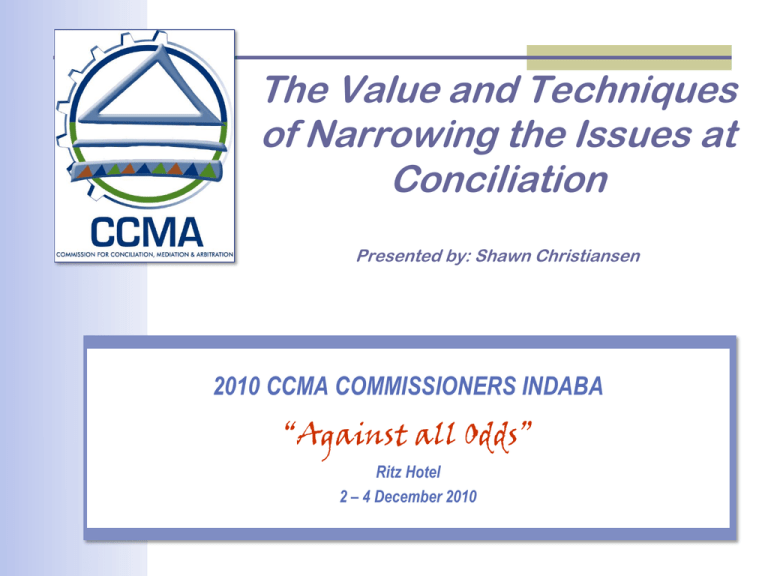
The Value and Techniques of Narrowing the Issues at Conciliation Presented by: Shawn Christiansen 2010 CCMA COMMISSIONERS INDABA “Against all Odds” Ritz Hotel 2 – 4 December 2010 What is Conciliation? Informal process aimed at enabling the parties to a dispute to discuss their differences Commissioner’s task/object is to help the parties to negotiate a settlement Parties meet in a joint session and the actual negotiations in the process are in every respect voluntary Process is endlessly flexible Non-agreement does not involve any adverse consequence The Narrowing of the Issues The objective is to reduce the Arbitration duration and the number of issues in dispute Also to Facilitate further negotiations S138(3) Enabling tool used to determine what the "facts" in a dispute are It is an evaluation of the dispute at hand Establishes the specific procedural and/or substantive issues Abbreviated summary of each party’s case Extracts facts and positions before arbitration The Values/Benefits An opportunity to learn about the material facts and legal issues One party will learn about the other party's case – assists to define dispute ‘Surprise and Maneuvering’ can be eliminated Prevents the arbitration of issues ‘known to be without merit’ Common cause issues can be determined Expert witnesses can be done away with The Values/Benefits continued Jurisdictional issues can be cleared Reduces the Arbitration to manageable parameters Encourages flexibility and creativity Identifies/Eliminates insubstantial claims Assists parties to realistically further evaluate alternatives Closes the gap dividing the parties Develops the terms of reference for the arbitrator The Techniques Start with those on which agreement is likely to be reached Admit ignorance and ask basic questions Probe into the parties' dispute and seek specific information Insist that the parties describe the material facts they intend to prove and the manner in which they intend to prove them Inquire into the substantive and procedural issues/merits The Techniques continued Probe into the likelihood of success and the potential disadvantages of pursuing them Clarify the allegations/claims Identify issues/elements in dispute Suggest the potential findings of fact and conclusions derived from case law Advise why certain issues are not sustainable in terms of the law and the LRA Ensure sufficient disclosure has been made The Techniques continued Identify those areas in which agreements can be reached on issues Identify any preliminary issues that may arise and seek the other party’s position on those issues - Use of Legal Representation Identify those issues from which parties might make admissions Identify witnesses whose evidence may not be necessary, so that unnecessary subpoenas are not issued The Techniques continued Encourage a further attempt to settle or simplify the issues in dispute Focus the parties on issues that divide them Enquire into relief sought Allow parties to ask questions in clarification Ask parties to indicate documents it intends relying upon and witnesses they intend calling Enquire from parties the legal principles applicable The Techniques continued Enquire into the number of hearing days that will be required for arbitration and clarify Enquire whether an interpreter will be required Develop non-binding statements - opening statements at later arbitration Collate information in an organized manner Compile outcome report Reduce conclusions to writing

